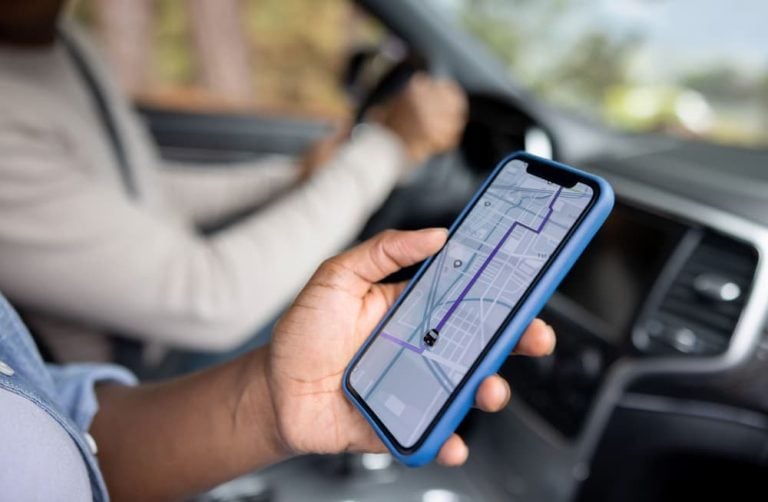Knowing your legal rights under Colorado law in a car accident is important in making sure that you’re protected should one ever occur. Accidents can come with unexpected bills, steep costs, and confrontations with insurance companies. To help you navigate some of these complexities, let’s look at the state of no-fault laws in Colorado, the legal rights they afford you, and when it is appropriate to seek legal representation.
What Are No-Fault Laws?
Put simply, no-fault laws keep minor traffic accidents out of court. If a car accident happens in a location with no-fault laws, then everyone involved with the accident is expected to resolve the matter through their insurance provider. This means that expenses like medical bills, car repair costs, and property damage are handled through auto accident insurance companies.
In the event of a serious injury or death, most no-fault states allow car accident victims to pursue the responsible party for financial compensation through lawsuits.
Does Colorado Have No-Fault Laws?
Put simply: no. If you are in a car accident, then you are able to sue the responsible party. Legally speaking, this means that any accident can be the basis for a tort claim.
However, this does not mean that every single car accident is grounds for a lawsuit. Simply because it is possible to file a lawsuit in response to a car accident does not mean that this is the best course of action. If you’ve been injured in an automotive accident, we recommend consulting with an experienced attorney to identify the best course of action.
Who Pays in a Car Accident in Colorado?
Most of the time, it is an insurance company that pays. Which insurance company often depends on who is determined to be at fault for the accident. After getting into a car accident in Colorado, it’s important to assess which driver is at fault. If a police report has been filed for your auto accident, it can be a valuable tool in establishing fault when talking to insurance companies.
If another party is at fault, you can approach their insurance company for fair payment for your damages. It’s important to know, however, that sometimes the at-fault party’s insurance company might approach you and offer you a nominal amount to settle the case before you even have a chance to assess the extent of the damages and injuries. Before signing anything, it’s important to consider what kind of expenses you will incur from medical bills, along with costs stemming from physical therapy or trauma counseling. If these injuries are serious, you can face an uphill battle in getting the full cost needed to recover.
While you are entitled to fair compensation if another driver is determined to be at fault, insurance companies might not offer you the payment that you deserve. When this is the case, we advise consulting with a personal injury lawyer. An experienced lawyer will be able to determine how much money you’ll actually need, and can leverage their experience to ensure that you are compensated fairly. Dealing with insurance companies can be difficult and technical, and having legal representation can make an important difference in the compensation that you are offered.
Do I Need to Carry Insurance While Driving in Colorado?
Yes.
Drivers in Colorado are required to carry a minimum amount of insurance in the event of a car accident. However, drivers can carry as much insurance as they want, but this also doesn’t guarantee that everyone carries this required insurance.
Do Colorado Car Accidents go to Trial?
Colorado is an at-fault state, but that doesn’t mean that every single car accident will go to trial. In fact, a majority of car accident cases in Colorado are not resolved in a trial. While it is possible to pursue fair compensation by suing the opposing party, there are other avenues available that we suggest exploring first. This is especially important if you are dealing with injuries that stemmed from the crash. Navigating insurance settlements is challenging during the best of times, and hiring a lawyer allows you to focus on healing.
We recommend hiring a Colorado auto accident attorney to help you navigate your options. Because of the experience and expertise of the attorneys at McDivitt Law Firm, we are usually able to get full value for a case without going to trial. However, our trial attorneys are available and prepared to fight insurance companies in court when necessary.
Is Colorado a Tort State?
Yes. Colorado’s tort laws mean that all auto accident claims are grounds for legal action, no matter how minor. If you’re involved in a car accident and believe the other driver to be at fault, you have the legal file a tort lawsuit. As noted above, this does not mean that your automatic response should be to sue.
We recommend contacting a law firm that specializes in auto accident cases, especially if the accident resulted in hospitalization.
What does “Tort” mean?
Put simply, a tort is a civil wrong that leads to an injury. Torts can be both intentional (such as assault or other violent actions) or the result of negligence (which is common in auto accidents).
When Should I Hire an Attorney?
It is important to hire an attorney if you’ve been injured. Dealing with medical bills can be a vastly more complex world than auto repairs, and it’s possible that further medical expenses may be waiting in the future. Auto accident victims that hire an attorney consistently see settlements that are multiple times higher than victims who don’t.
McDivitt Law Firm has been fighting for auto accident victims for over 50 years. Our experienced attorneys in Denver, Colorado Springs, Aurora, and Pueblo are determined to get our clients the compensation that they deserve. If you or a loved one has been involved in a car accident, contact us today to schedule a free consultation.


